The rapid advancement in Artificial Intelligence (AI) technologies has significantly influenced its incorporation into eLearning platforms, including Moodle. These developments have enabled Moodle to integrate a variety of AI functionalities that dramatically enhance both the efficiency of teaching processes and the personalization of learning experiences. From generating customized learning materials and assessments to offering real-time assistance and feedback through AI-powered chatbots, the infusion of AI into eLearning is reshaping the educational landscape. This evolution towards an AI-enhanced learning environment not only reflects the technological progress in AI but also Moodle’s commitment to improving educational delivery and outcomes for students globally.
I am Director of Rahab Ministry (a program of Youth Unlimited). We are impressed with Mindfield’s IT specialists in helping us redesign a website (rahab.yugta.ca) and their ongoing support. They were responsive and helped us think ahead instead of waiting for us to tell them what needed to be done. We will continue to look forward to their support.
Joanna Yee
Director, Rahab Ministry.
Review Source: Google Reviews
Outline
Top Moodle AI Plugins
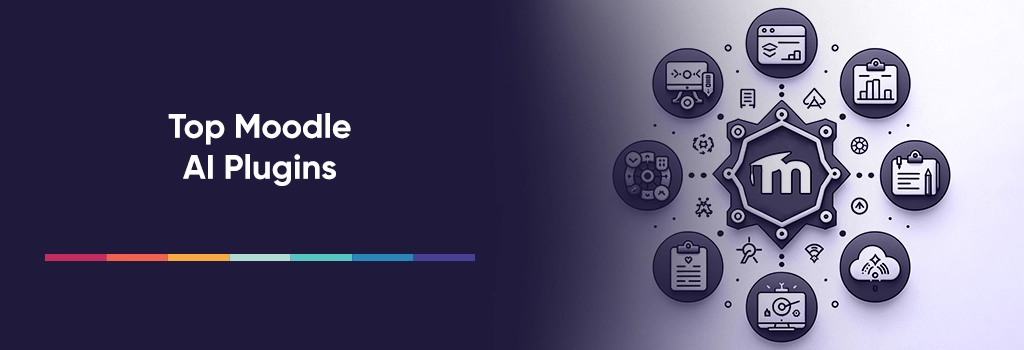
There are a variety of plugins available and that does not exclude AI plugins. Here are 10 plugins we’ve found that stood out amongst the rest.
- AI Connector
- OpenAI Chat Block
- OpenAI Question Generator
- AI Text to Questions Generator
- Compilatio Plagiarism and AI Content Detector
- Copyleaks Plagiarism and AI Content Detector
- X5-Moodle
- IntelliBoard
- LionAI Reports
- Nolej
- Teaching Assistant Block
Pros and Cons of Moodle AI Plugins

Let us dive deeper into each of the plugins to understand their uses, their pros and cons.
AI Connector
![]()
The AI Connector plugin acts as an intermediary, enabling Moodle to interface with AI services like ChatGPT, DALL-E, and Stable Diffusion for content generation, analysis, and more. It can be used by developers to incorporate AI-driven features in Moodle courses, such as automated content creation or language processing tasks.
Pros
- Seamlessly integrates with diverse platforms, fostering adaptability.
- Empowers decision-making processes with actionable insights.
- Delivers personalized user experiences, enhancing engagement.
Cons
- Initial setup complexity varies, requiring tailored technical expertise.
- Dependence on external AI services may pose privacy or security risks.
- Costs fluctuate based on usage metrics or subscription models.
OpenAI Chat Block
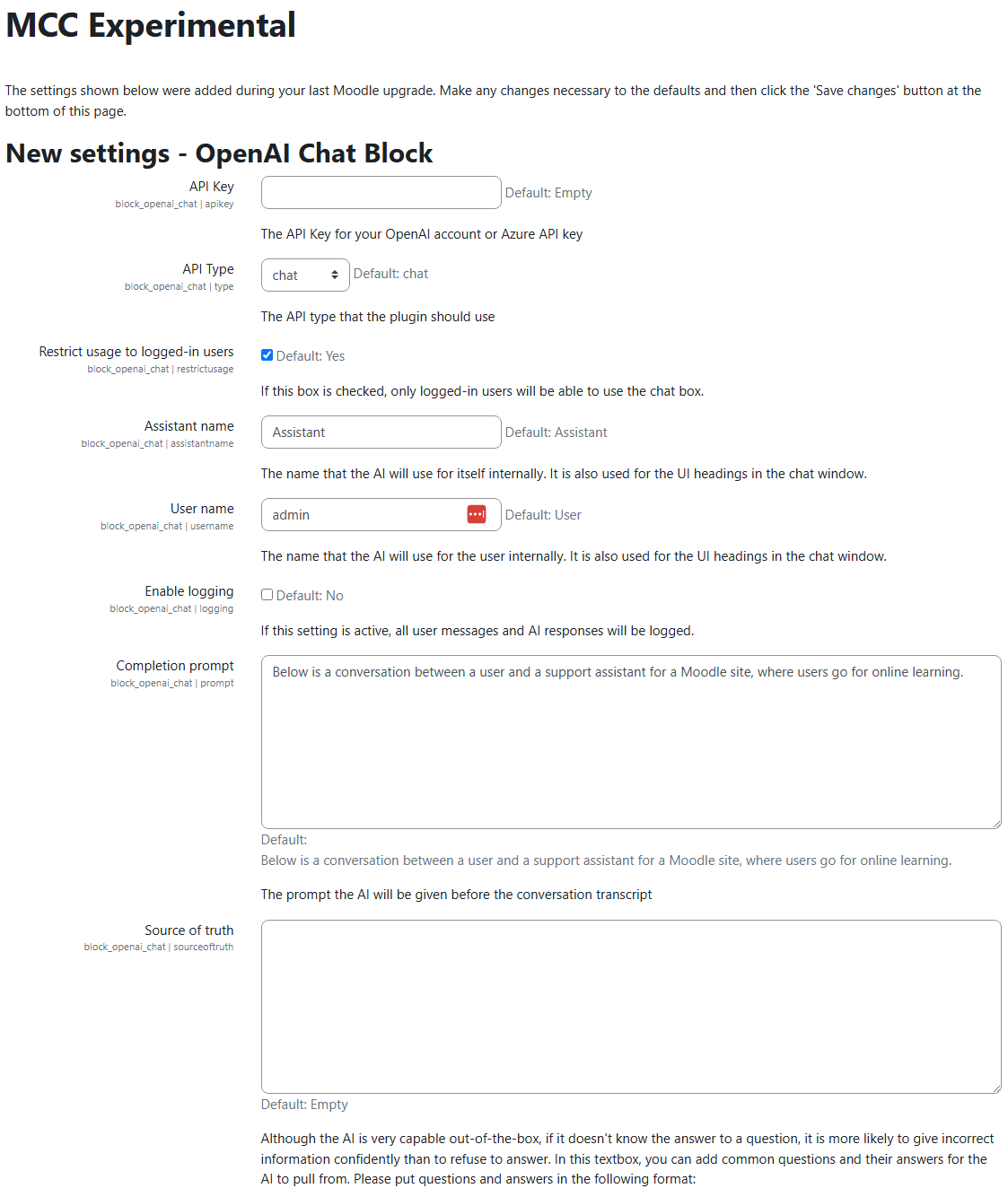
The OpenAI Chat Block plugin provides a chat interface powered by OpenAI’s GPT, offering real-time assistance or interaction within Moodle. It can be deployed for student support, feedback, or engagement, simulating conversational interactions with AI.
Pros
- Enhances user engagement through intuitive natural language interactions.
- Offers customizable support, tailored to meet specific use cases.
Cons
- Interpretation accuracy varies, impacting understanding of complex queries.
- Performance hinges on the capabilities of the underlying AI model and requires an API key from OpenAI.
OpenAI Question Generator

The OpenAI Question Generator plugin is an automated generation of quiz and test questions using OpenAI’s advanced natural language processing capabilities. It streamlines the creation of educational assessments by providing a diverse set of questions based on course content.
Pros
- Automates question creation, fostering efficiency and time savings.
- Facilitates personalized learning journeys, catering to individual needs.
- Ease of use
Cons
- Quality assurance is necessary due to varying generated question accuracy.
- Limited contextual awareness may result in less relevant questions.
- Performance hinges on the capabilities of the underlying AI model and requires an API key from OpenAI.
- Customization is limited to option provided by the OpenAI API.
AI Text to Questions Generator
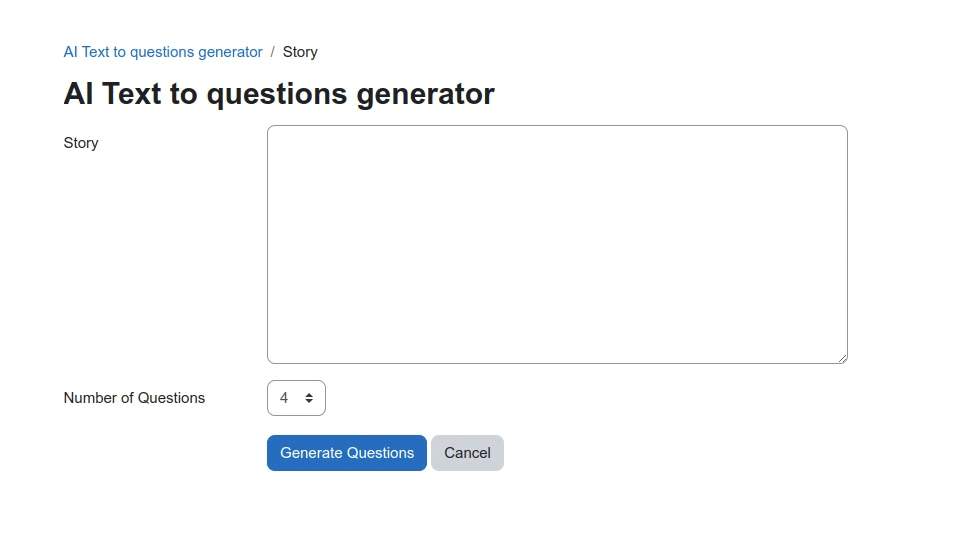
The AI Text to Questions Generator plugin transforms textual content into question-based assessments, leveraging AI to parse and formulate relevant questions. It assists educators in quickly creating quizzes and tests from existing textual material, enhancing content review and comprehension.
Pros
- Enables efficient conversion of textual content into interactive questions.
- Supports diverse language and content formats, enhancing versatility.
- Less dependency on third-party services due to use of locally hosted AI models instead of relying on an external API.
- Higher data privacy and security when data isn’t being sent to external servers.
Cons
- Accuracy may fluctuate based on text complexity, necessitating review.
- Specialized domain support may be limited, impacting relevance.
- Technical complexity is higher due to locally hosted AI models which will require a level of understanding in tech and development expertise to setup and maintain.
Compilatio Plagiarism and AI Content Detector

The Compilatio Plagiarism and AI Content Detector plugin is an advanced plagiarism detection tool that also identifies AI-generated content, ensuring academic integrity. It’s used for scanning student submissions to detect similarities with existing materials and flag AI-generated contents.
Pros
- Provides comprehensive plagiarism detection across varied content types.
- Facilitates academic integrity maintenance through detailed reporting.
Cons
- False positives/negatives may occur, necessitating manual verification.
- Subscription models or usage limits may impact accessibility.
Copyleaks Plagiarism and AI Content Detector
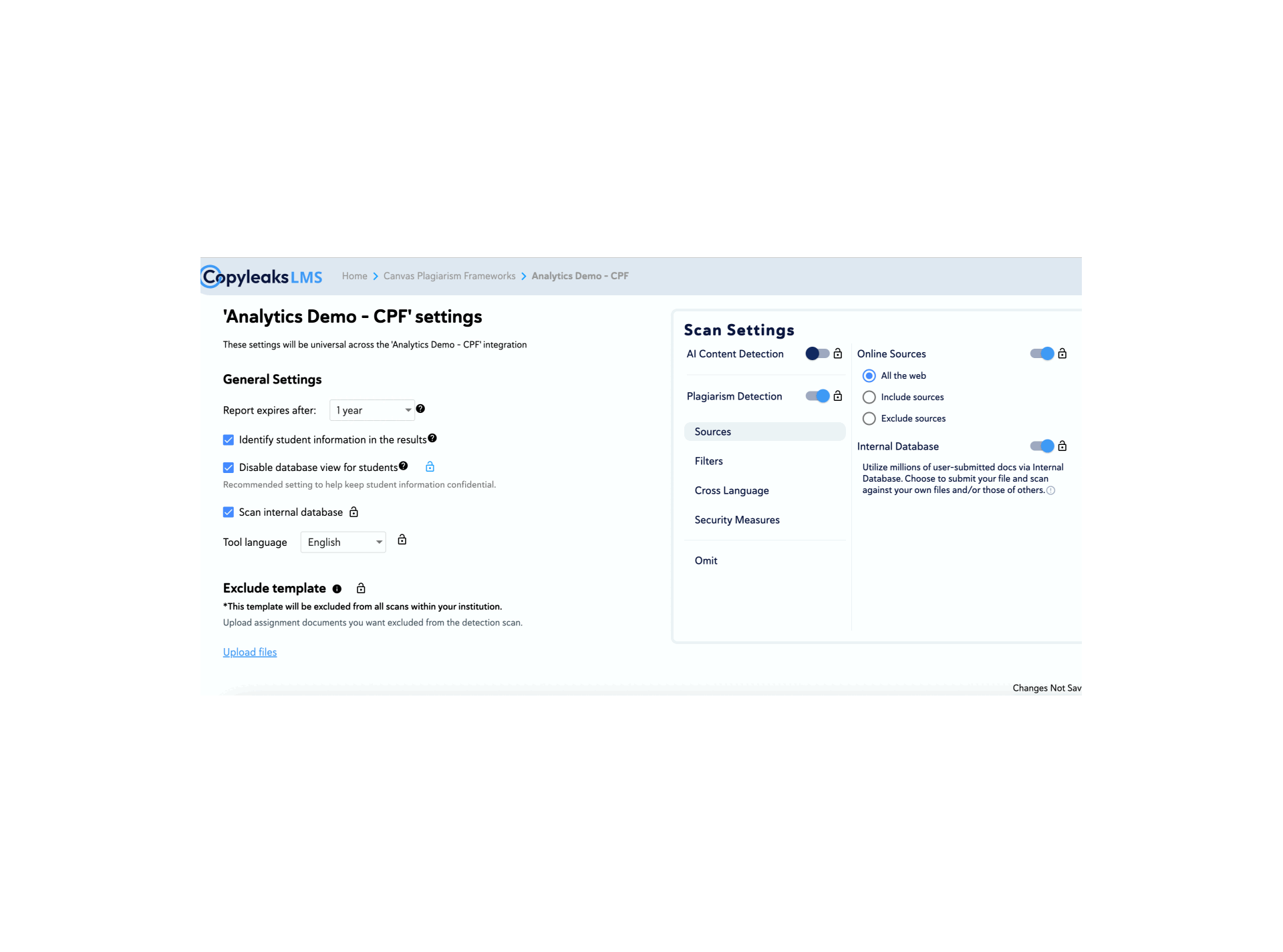
The Copyleaks Plagiarism and AI Content Detector plugin offers plagiarism detection and identification of AI-generated texts, with extensive language support. It is essential for upholding academic integrity by scrutinizing submissions for originality across a wide array of document types and languages.
Pros
- Offers real-time plagiarism detection with multi-format support.
- Streamlines content integrity maintenance through seamless integration.
Cons
- Reliance on subscription models may pose budgetary constraints.
- Detection accuracy may vary, impacting reliability.
Intelliboard
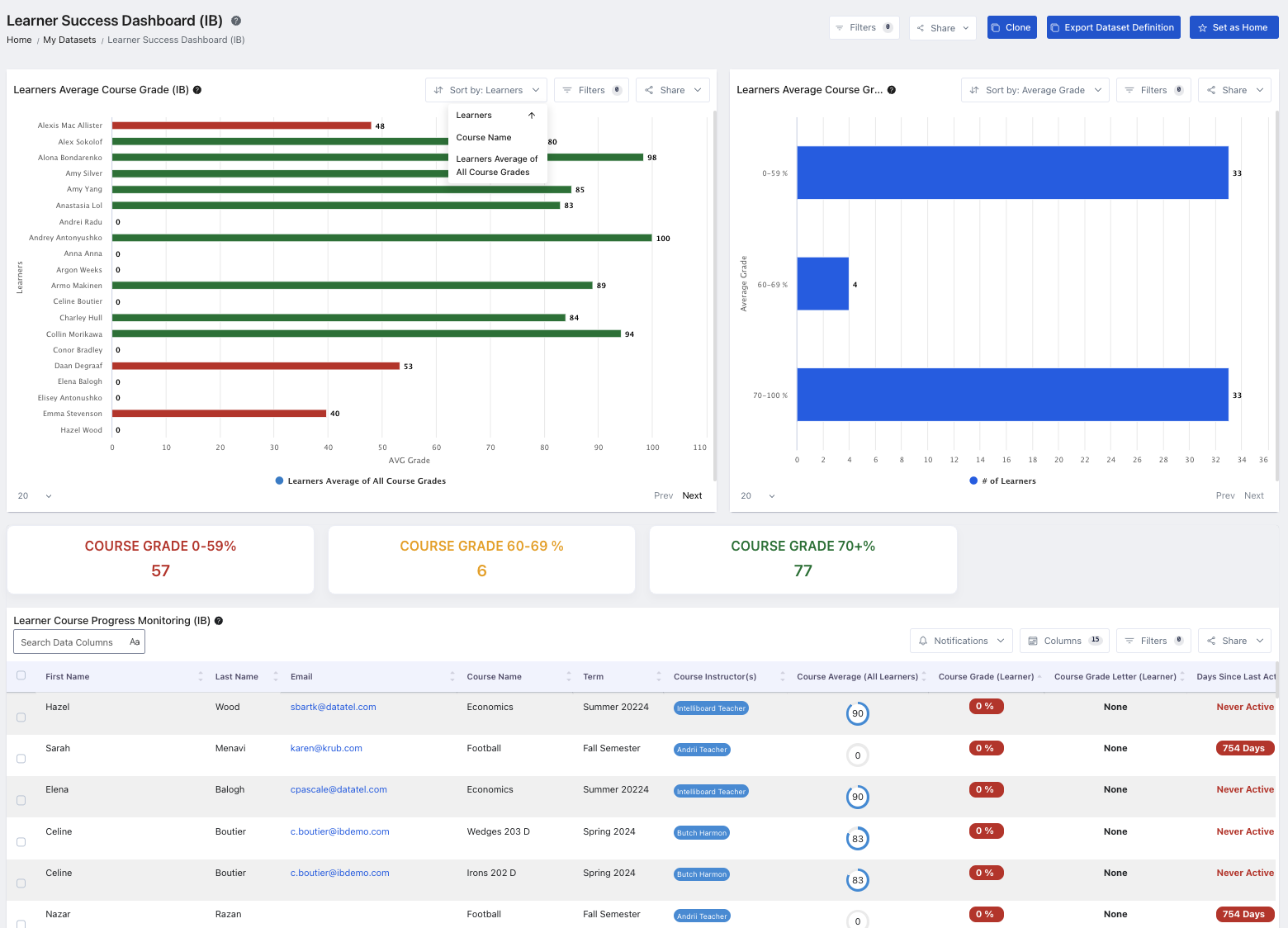
IntelliBoard is a comprehensive analytics and reporting platform designed to work with Moodle, offering educators, administrators, and learners enhanced insights into their e-learning environments. IntelliBoard stands out in the Learning Management System (LMS) analytics space for its robust features and user-friendly interface.
Pros
- Offers a wide range of customizable reports and analytics dashboards that provide detailed insights into learner engagement, course completion rates, grades, and more.
- Provides real-time data, allowing educators and administrators to make informed decisions quickly and identify at-risk students sooner.
- Known for its intuitive and easy-to-navigate dashboard, making it accessible for users with varying levels of technical expertise.
- Helps in identifying learning patterns and behaviors, enabling personalized feedback and tailored learning experiences for students.
- Offers excellent customer support and training resources to help users maximize the use of the platform.
Cons
- While offering a significant value, IntelliBoard is a premium service, which may be a consideration for institutions with limited budgets.
- The sheer volume of data and reports available can be overwhelming for new users or those with limited time to delve into analytics.
- For larger datasets or institutions, there may be concerns about the performance impact on Moodle’s server, though this largely depends on the hosting environment.
- While highly customizable, there may be specific reporting needs or niche requirements that require further development or customization.
LionAI Reports
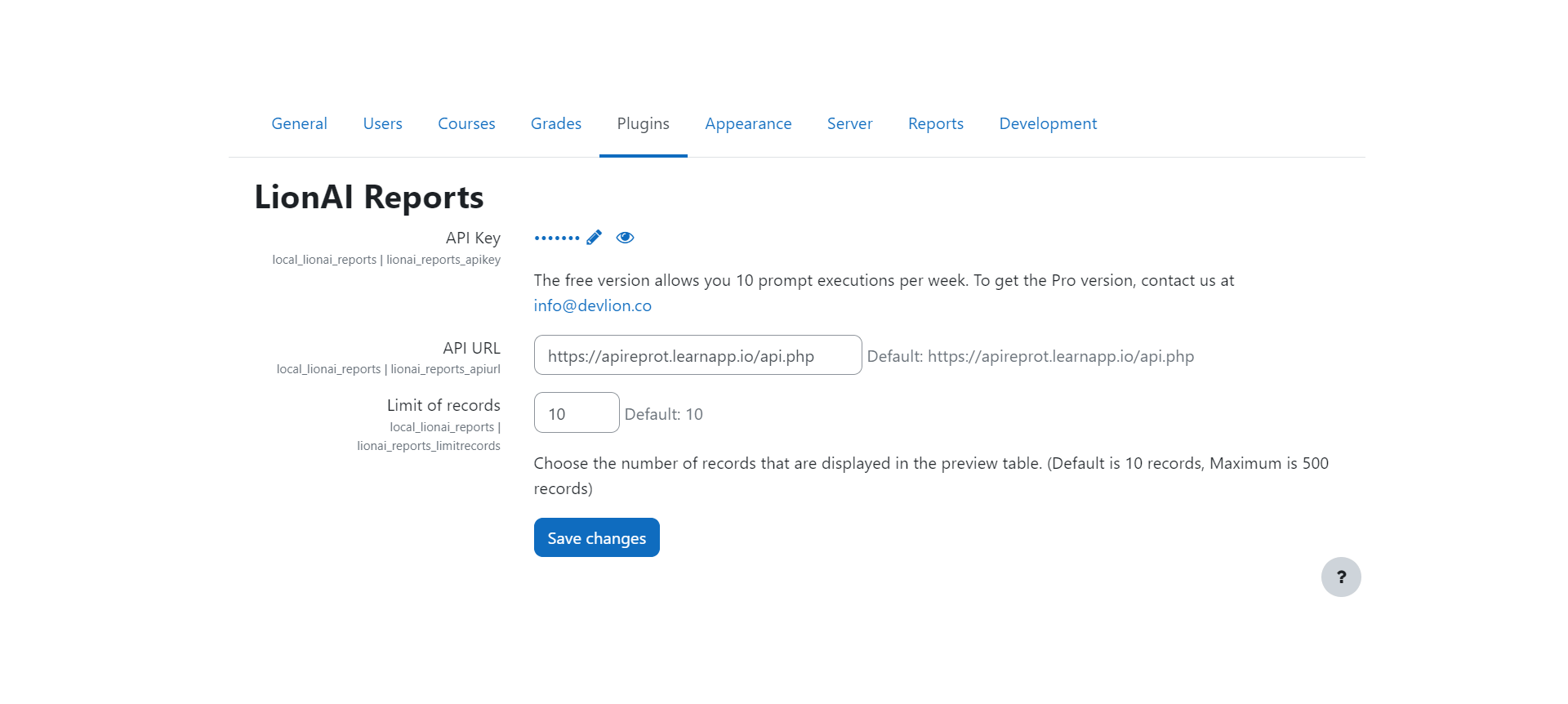
LionAI Reports simplify report creation by generating SQL queries from natural language inputs, making it accessible for users without SQL expertise.
Pros
- Easy report creation using natural language; accessible for non-technical users.
- Reduces time needed for complex data analysis.
-
Customizable reports tailored to institutional needs.
Cons
- Limited to SQL-based reporting. Dependent on underlying data structure.
- Potential security risks if data queries are not properly managed.
-
Requires accurate natural language input for precise results.
Nolej
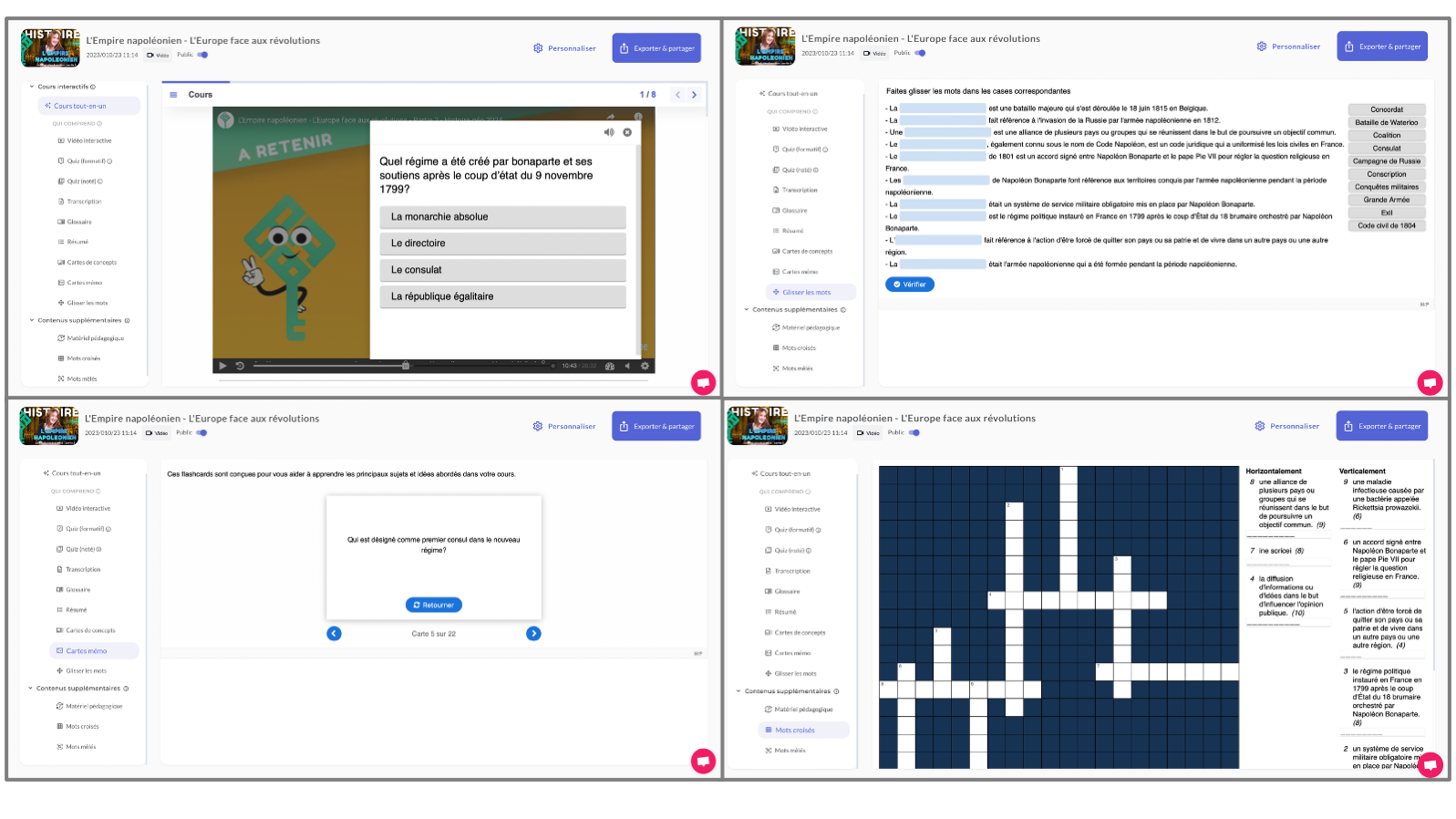
Nolej allows users to upload content like videos and PDFs to create interactive learning activities. Supports SCORM and H5P formats and enables direct H5P activity creation within Moodle.
Pros
- Versatile content creation; supports multiple file formats.
- Seamless H5P integration. Accelerates content development.
-
Enhances interactive learning experiences with AI-generated activities.
Cons
- Learning curve for complex interactive content.
- Potential compatibility issues with legacy content.
-
May require strong internet connectivity for optimal performance.
Teaching Assistant Block
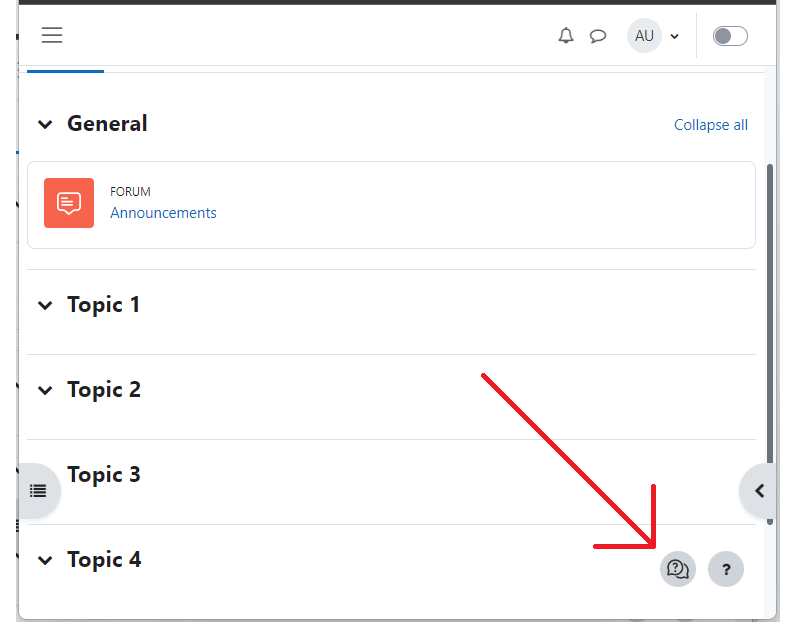
The Teaching Assistant Block is an OpenAI-powered chatbot designed to assist learners by engaging in meaningful conversations based on your course content. By uploading your materials to the UBE: Oracle Chat platform, the chatbot can provide context-aware responses, aiding students in understanding course material, preparing for assessments, or navigating the site. It supports multiple languages, including English, Spanish, French, and more.
Pros
-
Contextual Assistance: Provides learners with relevant information derived from your uploaded content.
-
Multilingual Support: Caters to a diverse student body by supporting various languages.
-
Flexible Integration: Can be added to specific course pages or site-wide.
-
Privacy Considerations: Recognized for its privacy-friendly approach.
Cons
-
External Dependency: Requires a subscription to the UBE: Oracle Chat platform, though a free tier is available.
-
Setup Complexity: Initial configuration involves multiple steps, including uploading documents and setting up filters.
-
Data Exposure: Uploaded documents are accessible to chatbot users, raising potential privacy concerns.
Comparative Analysis of the Moodle AI Plugins
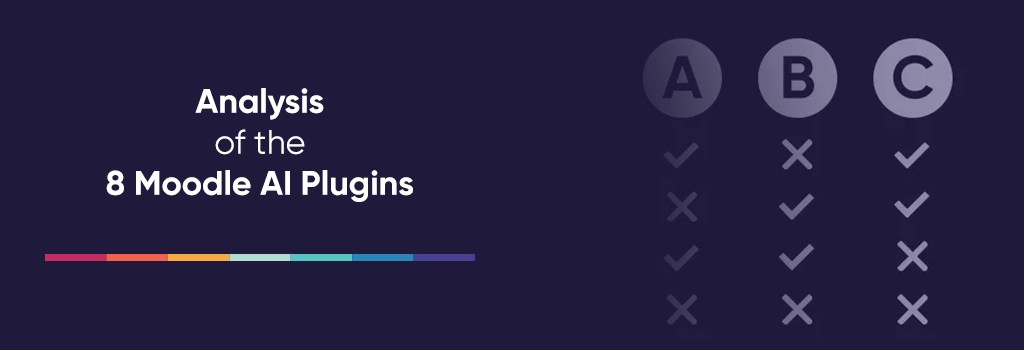
Below is the table showing a general analysis of the 8 Moodle AI plugins we’ve introduced. Each feature is rated on a scale from 1 to 5.
| Plugin | Ease of Use | Functionality | Integration Ease | Cost Efficiency | Overall Utility |
|---|---|---|---|---|---|
| AI Connector | |||||
| OpenAI Chat Block | |||||
| OpenAI Question Generator | |||||
| AI Text to Questions Generator | |||||
| Compilatio Plagiarism and AI Content Detector | |||||
| Copyleaks Plagiarism and AI Content Detector | |||||
| Intelliboard | |||||
| LionAI Reports | |||||
| Nolej | |||||
| Teaching Assistant Block |
Is hiring a Moodle Expert Developer worth it?

Hiring a Moodle expert developer for selecting or developing AI plugins for Moodle brings numerous benefits. Firstly, their deep understanding of the Moodle platform ensures seamless integration of AI plugins, maximizing their functionality within the learning management system. Moreover, these experts possess the technical proficiency to assess the specific needs and requirements of an educational institution or organization, thus selecting or developing AI plugins tailored to those needs. By leveraging their expertise, institutions can optimize the use of AI technology to enhance teaching and learning experiences, improve engagement, and streamline administrative tasks.
Additionally, Moodle expert developers stay abreast of the latest advancements in AI technology, enabling them to recommend or create plugins that utilize cutting-edge algorithms and methodologies. This proactive approach ensures that institutions remain at the forefront of innovation in education, driving continuous improvement and growth. Ultimately, hiring a Moodle expert developer empowers institutions to harness the full potential of AI plugins, maximizing the benefits they bring to the teaching and learning environment.
In summary, Moodle AI plugins offer an array of benefits for educational institutions, ranging from enhancing user engagement to streamlining administrative tasks. Whether it’s leveraging AI for personalized learning experiences, plagiarism detection, or content generation, these plugins have the potential to revolutionize teaching and learning. However, the successful integration and utilization of these plugins hinge on the expertise of Moodle developers who possess a deep understanding of both the platform and AI technology. By partnering with experts, institutions can ensure seamless integration, optimal functionality, and continuous innovation in their Moodle environments. As AI continues to evolve, leveraging these plugins will undoubtedly play a pivotal role in shaping the future of education, driving efficiency, effectiveness, and student success.

